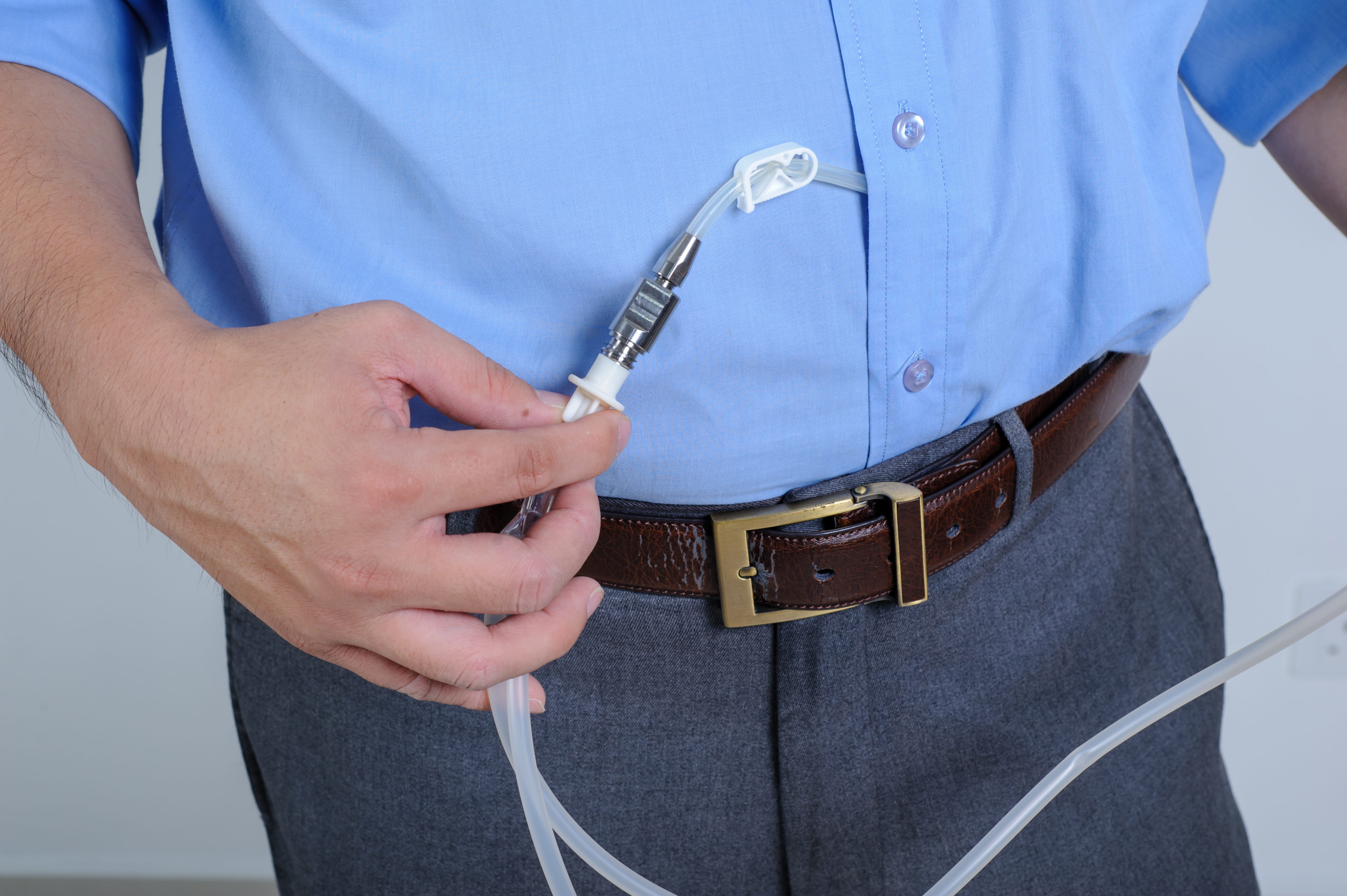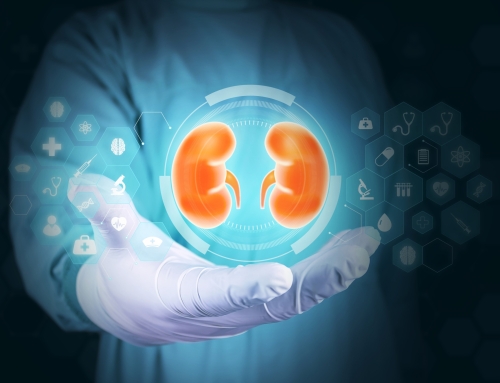One advantage of peritoneal dialysis (PD) is that people who choose PD can do it while they sleep using a cycler. The cycler is a machine that fills and drains dialysate into the peritoneal cavity in the abdomen several times during the night. While the dialysate is in the peritoneal cavity, it helps pull toxins from the blood through the peritoneal lining. After a time of dwelling, the dialysate is drained from the peritoneal cavity which is refilled with fresh dialysate. While it may seem difficult to sleep during dialysis, many who choose Automated Peritoneal Dialysis (APD) report that they get used to it and it isn’t an issue.
Another PD option is to perform manual exchanges. In this PD treatment option the patient will fill, dwell and drain dialysate from their abdomen four times each day without using a machine. Each exchange takes about 20 to 30 minutes. To perform an exchange the patient will need a clean area as well as access to their supplies. Some people use a combination of APD while they sleep along with a manual exchange during the day.
Because peritoneal dialysis is a form of home dialysis, many people choose PD to have more control over their treatment and schedule. Since PD is performed everyday there are also fewer food and fluid restrictions. Traveling is easier for those on PD since they do not have to arrange for treatment at a hemodialysis center. Instead, they can arrange to have their supplies shipped directly to their destination and not miss out on any activities with family and friends since they can do their dialysis around their schedule.
There are usually no limitations to exercise and intimacy due to the catheter. A person on PD must be careful to keep the catheter clean to avoid infection at the site or an infection in the peritoneum called peritonitis. Space must also be available in the home to store the PD supplies (about a 6’ by 8’ space).
Pros and cons of peritoneal dialysis
Pros
- Gentler, slower dialysis with less side effects. Best option for any patients with heart disease.
- A partner is not required.
- CAPD and CCPD are interchangeable depending on your schedule.
- Can dialyze during sleep
- No need to go to center three times a week
- Comfort of being at home for treatment
- No need to be stuck with needle each treatment like hemodialysis
- Fewer food and liquid restrictions than hemodialysis
- Don’t need to arrange for dialysis treatment at a center when traveling
Cons
- Treatments are done seven days a week.
- Need to take have space in home to set up machine and store PD supplies
- Need to be careful to not get PD catheter infected
- PD can cause weight gain due to glucose in the dialysate (dialysis solution)




